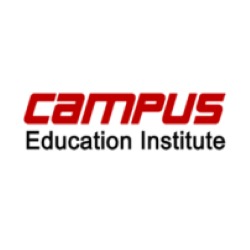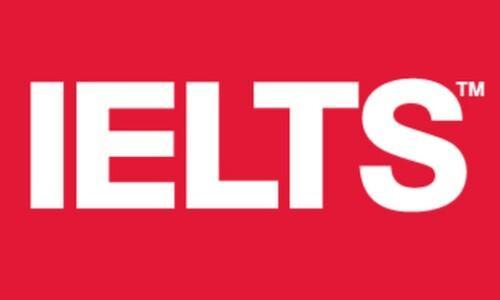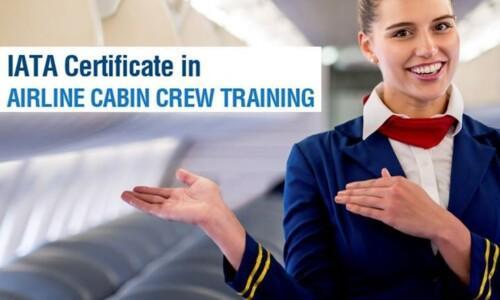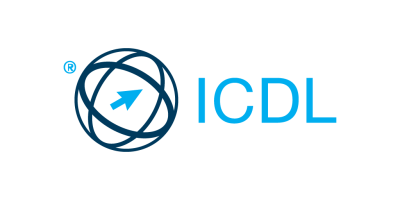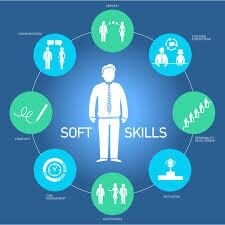SPHRi Senior Professional in Human Resources – International ( HRMP )
In this course, you will learn SPHRi ( HRMP ) ® terminology required to pass the SPHRi ® exam. You will receive a CD of material including the SPHRi Body of Knowledge ® Guide and Exam Bank Questions. You will also receive …
In this course, you will learn SPHRi ( HRMP ) ® terminology required to pass the SPHRi ® exam. You will receive a CD of material including the SPHRi Body of Knowledge ® Guide and Exam Bank Questions. You will also receive Campus SPHRi ® Certificate.
[tabs type=”vertical”] [tab title=”What is The Certificate “]

The Senior Professional in Human Resources – International SPHRi is a globally relevant credential that is designed to validate management-level core HR knowledge and skills. The credential demonstrates mastery of generally accepted HR principles in strategy and policy development as well as service delivery. Independent of geographic region, the credential complements local HR practices. Through demonstrated knowledge, the credential enhances the credibility of HR professionals and the organizations they serve.
[/tab] [tab title=”Accredited Organization“]

The HR Certification Institute HRCI, established in 1976, is an internationally recognized certifying organization for the human resource profession. Today, more than 120,000 HR professionals worldwide proudly maintain the HR Certification Institute’s credentials as a mark of high professional distinction. The HR Certification Institute is a global leader in developing rigorous exams to demonstrate mastery and real-world application of forward-thinking HR practices, policies and principles. http://www.hrci.org/
[/tab] [tab title=”Certificate Advantages“]

– Teach the most advanced practices of human resources management. – Become more marketable when competing for a HR job. – Increase your Professional Confidence among your employees and colleagues. [/tab] [tab title=”Target Audience“]

– The person who wants to know the human resource manager functions
– Experienced Managers
– Mid level managers wants to upgrade
– Working in Human resources who are interested development and progress in their careers
– HR Advisors and Talent Management
– HR managers
– HR officers
– Job Board Execs
– Job Board Owners and Directors
– MBA Students
– Senior Manager and Talent Development
– Recruitment Specialists and Supervisors Responsible for Recruitment
– Talent Managers
– VP Human Capital Management
– Training and Development Managers
– Talent Acquisition Professionals
[/tab] [tab title=”Workshop Activities“]

– The workshops are for senior HR managers and other key stakeholders to develop an understanding of the potential strategic advantage to be gained through best practice and high performance.
– Describe the strategic approach to driving world class performance within an organization.
– Understand the 5 core elements underpinning high performance HR.
– Deploy approaches in each of these areas.
– Articulate the benefits of this approach.
[/tab] [tab title=”Program Objectives“]

– Understand and apply the material tested on the SPHRi exam.
– Expand and update your HR knowledge for professional development.
– Learn from an experienced and certified instructor.
– Discuss topics with peers from diverse backgrounds.
– Keep on track and motivated to earn your SPHRi certification.
– High ethical standards.
– Personal skills.
– Communication skills.
– Motivational and leadership skills.
– Significant know how.
[/tab] [tab title=”Why Campus“]

– Following up/guiding the participant until he/she passes the SPHRi Certificate Exam.
– 40 Credit Hours.
– Certified and Professional Instructors.
– Free Material + Questions.
– Free Revision for each section.
– Free Quiz after each section.
– Re-attending the Course.
– Free Membership and Membership Benefits.
– Free Recruitment for one year.
– Catering Services.
– Certificate of attendance from CAMPUS.
[/tab] [tab title=”Program Certification“]

– A Certificate issued by Human Resources Certification Institute – HRCI – In Addition a certificate of achievement will be awarded to those who faithfully attend, participate and successfully complete the course. [/tab] [tab title=”Outlines“]

Functional Area 01 | Business Leadership (31%)
Leading the HR function, providing strategic HR consultation to senior management, and developing partnerships with all areas in the organization. Contributing to the overall strategy of the organization through activities such as evaluating organizations considered for mergers and acquisitions, conducting human capital analyses, and understanding global HR issues.
Responsibilities:
01 Contribute to the development of the organization’s strategy
02 Determine how the organization’s strategy guides workforce requirements (for example, decide how human capital strategy will support the business
03 Assess future business opportunities from an HR perspective (for example, building new operations, global expansion, mergers and acquisitions)
04 Conduct due diligence before acquiring another company (for example, evaluate important information about the potential acquisition)
05 Manage the integration of people, systems and cultures during organizational transitions
06 Design and lead an HR function by establishing major HR roles and responsibilities
07 Co-lead in establishing the organization’s values and ethics that support its strategy
08 Promote the organization’s corporate social responsibility initiatives
09 Advise business leaders and others on HR matters
10 Align the human capital strategy with the organization’s business strategy
11 Align local HR strategy with global HR strategy
12 Lead the executive management team in HR discussions and decisions
13 Conduct a human capital risk analysis, (for example, workforce needs)
14 Promote the organization’s employer brand
15 Promote and support the organizational culture
16 Promote a culture that welcomes new ideas and innovation
17 Develop and manage the HR budget
Knowledge of:
01 Business elements of an organization (for example, products, competition, customers, technology, demographics, culture, processes, safety and security)
02 Financial knowledge (for example, evaluating financial statements, budgets, accounting terms, and cost management)
03 Vision, mission and values of an organization
04 Strategic planning process
05 Global and local economic and geopolitical trends that affect the business
06 Methods of gathering data for strategic planning purposes (for example, using methods such as a SWOT analysis [Strengths, Weaknesses, Opportunities, Threats] and a PEST analysis [Political, Economical, Socio-Political and Technological])
07 Legal and regulatory requirements
08 Merger and acquisition processes
09 Expectations of HR from the internal and external stakeholders
10 Cultural and social sensitivity (for example, awareness of and appreciation for cultural differences in the workplace
11 Corporate social responsibility (for example, environmental practices, sustainability and protection of resources)
12 Management functions (such as planning, directing, assessing, implementing, delegating, coaching, etc.)
13 Decision making processes in the organization (problem solving, consensus building, rational, etc.)
14 Drivers and impact of organizational culture
15 Labor legislation and compliance (for example, labor categories, health care, retirement and cross-border legislation)
16 Effective communication skills locally and globally (for example, interpersonal skills, listening, speaking, and cross-cultural communication)
17 Human relations concepts and applications (for example: relationship building, emotional intelligence, interpersonal communication)
18 Dealing with situations that are uncertain, unclear or chaotic
19 Corporate governance procedures and compliance (for example, Board of Directors)
Functional Area 02 | Talent Development and Management (27%)
Identifying and developing relevant individual and organizational competencies; developing and using a talent management strategy to sustain long- term, effective alignment with organizational strategies to achieve human capital objectives; establishing a learning environment in which continuous professional development includes staying current in HR practices. Using a set of systematic and planned activities designed by the organization to help people develop the necessary skills to meet current and future organizational needs and objectives. Creating an organizational environment that encourages and retains the employees.
Responsibilities:
01 Design and implement programs or processes in order to develop and engage the workforce (for example training and development programs, knowledge management)
02 Analyze labor market trends that influence workforce availability
03 Train and coach managers on performance management systems and processes
04 Facilitate change in the organization
05 Develop programs and processes that promote diversity and inclusion
06 Establish programs to identify and develop high potential employees
07 Create succession and career development plans
08 Engage in continuous professional development
09 Provide mentorship to the HR team and overall organization
Knowledge of:
01 Organizational development methods and problem-solving techniques
02 Change management processes and techniques
03 Leadership theories and applications
04 Adult learning principles and methods
05 Training design and development
06 Techniques for integrating employees into the organization after a merger, acquisition or restructure
07 Methods to motivate employees
08 Employee collaboration methods (for example team building)
09 Cross cultural and multigenerational awareness (for example dynamics of global teams)
10 Retention strategies
11 Benchmarking
12 Performance management theories and approaches
13 Talent management practices (selecting, assessing and developing employees
14 Organizational demographics (for example the generations of employees, their ages, cultures, and genders)
15 Conflict management (recognizing and resolving difficult issues and problems)
16 Coaching and mentoring techniques (helping others develop, providing guidance and feedback, executive coaching)
17 Facilitation (for example, managing teams, leading meetings and focus groups
18 Succession planning frameworks
19 Techniques to encourage creativity and innovation
20 Career development paths (structuring promotional and developmental opportunities within an organization)
21 Compensation and benefits philosophy
Functional Area 03 | HR Service Delivery (24%)
Using effective HR Service Delivery methods to deliver accurate and consistent programs that support sustainable organizational growth. Creating an environment where all employees can find answers to HR questions; using effective communication plans, HR technology and tools; identifying HR service delivery methods used by a group that may be applicable across the organization; defining and implementing compensation and benefit programs and managing employee arrivals and departures from the organization as appropriate.
Responsibilities:
01 Develop and implement effective recruiting and hiring processes
02 Establish programs that support flexible work practices
03 Analyze internal and external labor market conditions (for example, skills available locally, salary expectations)
04 Optimize technology and tools to deliver HR services (for example, payroll, employee self-service, social networking, and Human Resource Information Systems [HRIS])
05 Plan and implement employee benefits programs
06 Develop and implement total rewards programs (for example, salary, bonus and other forms of employee recognition, expatriate and foreign national compensation programs)
07 Establish on-boarding processes and employee integration plans
08 Develop and manage programs to balance the organizational and employee needs (for example, expatriates, disability challenges, dependent care, employee health and safety)
09 Manage the return of employees to the organization (for example, people returning from maternity leave, expatriates returning to home country, people ending sabbaticals, or employees returning from layoffs)
10 Manage employee’s exit from the organization (both voluntary and involuntary)
Knowledge of:
01 Industry trends in HR (for example, population statistics, economics, sources of talent)
02 Industry benchmarks for compensation (for example, salary surveys, benefit packages)
03 Local labor conditions, including laws, legislation and international practices
04 Organizational needs and practices
05 Employee relocation, domestic and international
06 Forecasting techniques (for example, determining staffing needs for the future)
07 Assessment methodology (survey, observer ratings, gap analysis, etc.)
08 Recruitment practices and sources in target markets
09 Employer marketing and branding techniques
10 Techniques and methods for organizational design ( for example outsourcing, shared services, organizational structures [matrix, hierarchy] )
11 Evaluation of HR information systems (HRIS) and technology (for example, their use for payroll, talent development, and employee data)
12 Social media and web applications
13 Project management (for example, goals, timetables, deliverables, and procedures)
14 Negotiation techniques (including influencing others)
15 Interviewing techniques
16 Investigation techniques
17 Parameters around giving advice to employees
18 Supporting ideas and concepts to the appropriate audience (advocacy)
19 Compensation and benefits administration (including non-cash rewards, stock programs)
20 Termination processes
21 Data security and privacy
22 Organizational documentation and electronic record retention and storage requirements
23 Workplace security (including disaster preparedness, recovery, business continuity)
24 Workplace health, wellness and safety practices
25 Service standards for HR service delivery
Functional Area 04 | Measurement and Analysis (18%)
Developing and utilizing key HR and business metrics such as those related to individual and organizational performance. Interpreting data to improve employee performance and increase the value of the organization.
Responsibilities:
01 Monitor the effectiveness of an employee performance management system
02 Establish and analyze HR metrics as they relate to the organization’s goals (for example, employment statistics, return on investment [ROI] of HR activities, training evaluation, employee satisfaction surveys, productivity data, organizational analysis)
03 Integrate individual and team performance results with organizational measures of success
04 Develop and utilize key HR and relevant business metrics to measure achievement of the organization’s strategic goals and objectives
Knowledge of:
01 Quantitative metrics
02 Qualitative measures
03 Performance management data interpretation
04 Financial metrics (for example, ROI, cost per hire, gross profit, cost-benefit analysis)
05 Operational metrics (for example, measures of production, service measures, customer satisfaction)
06 HR measures (established measures, benchmarks and scorecards)
07 Data appropriate to different audiences (customized reports for appropriate audiences)
08 Methods of reporting organizational metrics (for example dashboard indicators)
09 Technology available to evaluate and present metrics (for example, Enterprise Resource Planning system [ERP], desktop software, HRIS)
10 HR audit and evaluation (for example payroll reconciliation, head count)
11 Techniques to assess training program effectiveness (for example: participant surveys, pre- and post-testing)
12 Basic research principles
[/tab] [tab title=”Fees/Tuition“]

For the latest Offers & Savings, Please Call now.
[/tab] [tab title=”Duration/Schedule“]

40 Credit Hours
– One session per week (2.5 Months).
– Two Lectures per week (1.5 Month).
[/tab] [tab title=”Instructors/Lecturers“]

In Campus Education Institute, all our instructors are certified, professional, experienced in delivering this program and have multinational experience of at least 15 years in order to ensure delivering the real life and work experience along with the academic knowledge.
Speaking Languages: ( English / Arabic ).
[/tab] [tab title=”Exam Details“]

Exam contains multiple choice questions, and includes 105 questions subject to assess and 25 questions is not subject to assess the final and non-subject questions do not fall in the total score.
Exam Content:
The SPHRi exam is divided into four functional areas:
Functional Area 01 | Business Leadership (31%)
Functional Area 02 | Talent Development and Management (27%)
Functional Area 03 | HR Service Delivery (24%)
Functional Area 04 | Measurement and Analysis (18%)
[/tab] [/tabs]
Course Features
- Duration 40 hours
- Activities Human Resources

